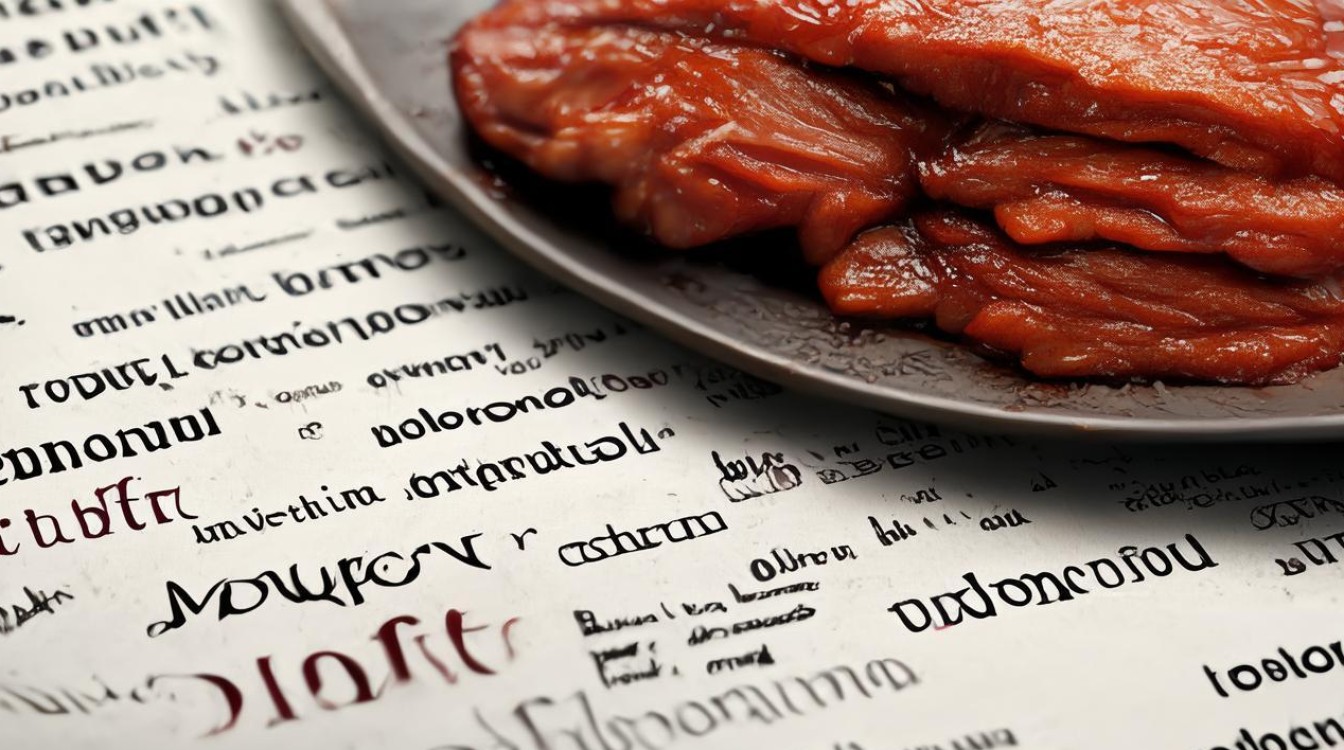在英语中,描述食物味道的词汇丰富多样,有些单词本身就能让人联想到舌尖上的美妙体验,掌握这些词汇不仅能提升语言表达的精准度,还能让日常对话或写作更具感染力,以下是一些让人“垂涎欲滴”的英文单词,它们不仅发音悦耳,更能精准传达食物的独特风味。

Succulent(多汁的)
“Succulent”形容食物鲜嫩多汁,常用于描述烤肉、水果或海鲜,这个词的发音圆润饱满,仿佛能让人感受到汁水在口中迸发的快感。
The succulent roast chicken was perfectly seasoned and melted in the mouth.
Savory(咸香的)
“Savory”指食物带有咸鲜味,通常用于形容肉类、奶酪或炖菜,与“sweet”相对,它强调一种令人满足的浓郁风味。
The savory aroma of garlic butter shrimp filled the kitchen.
Delectable(美味的)
“Delectable”比“delicious”更高级,带有一种精致、令人愉悦的意味,适合形容高档料理或甜点。
The pastry chef prepared a delectable chocolate soufflé that impressed every guest.
Zesty(爽口的)
“Zesty”通常形容食物带有清新的酸味或辛辣感,比如柠檬、柑橘或辣椒的风味,这个词充满活力,能让人联想到明亮的味觉体验。
The zesty lime dressing gave the salad a refreshing kick.
Buttery(黄油香的)
“Buttery”不仅指食物含有黄油,更强调一种顺滑、浓郁的口感,常用于形容面包、糕点或某些海鲜。
The lobster tail was so buttery that it practically dissolved on the tongue.
Umami(鲜味的)
源自日语的“umami”如今已成为国际通用词汇,指代第五种基本味觉——鲜味,它常见于酱油、蘑菇、番茄和熟成肉类中。

The miso soup had a deep umami flavor that warmed the soul.
Crispy(酥脆的)
“Crispy”描述食物外层酥脆、内里柔软的口感,比如炸鸡、薯片或新鲜蔬菜,这个词自带声音效果,让人联想到咬下时的“咔嚓”声。
The fried chicken stayed crispy even after being drizzled with hot sauce.
Fluffy(松软的)
“Fluffy”形容食物轻盈蓬松,如蛋糕、舒芙蕾或蒸好的米饭,这个词能让人联想到云朵般的柔软质地。
The pancakes were so fluffy that they almost floated off the plate.
Tangy(酸辣的)
“Tangy”介于酸和辣之间,常用于形容泡菜、酸奶或某些酱料,这个词带有一种刺激而开胃的意味。
The tangy barbecue sauce balanced the richness of the smoked ribs.
Smoky(烟熏的)
“Smoky”描述食物经过烟熏后的独特风味,常见于培根、威士忌或烧烤类菜肴,这个词能唤起篝火或木炭的香气记忆。
The smoky flavor of the grilled eggplant added depth to the dish.
Juicy(多汁的)
“Juicy”比“succulent”更口语化,直接强调食物富含汁液,尤其适合形容水果或汉堡肉饼。
The watermelon was incredibly juicy, with each bite releasing a burst of sweetness.
Creamy(奶油般的)
“Creamy”形容食物质地柔滑细腻,如浓汤、冰淇淋或某些酱料,这个词能让人联想到丝绸般的顺滑感。
The creamy mashed potatoes were the perfect comfort food on a cold evening.
Spicy(辛辣的)
“Spicy”泛指食物带有辣味,但程度可轻可重,从微辣到火辣均可使用。
The spicy kimchi stew warmed us up instantly on a rainy day.
Aromatic(芳香的)
“Aromatic”强调食物散发浓郁香气,如香草、香料或炖煮类菜肴,这个词能让人闭眼嗅到诱人的气味。
The aromatic curry simmering on the stove made the whole house smell incredible.
Tender(嫩滑的)
“Tender”形容肉类或蔬菜质地柔软易嚼,与“tough”相对。
The slow-cooked beef was so tender that it fell apart with a fork.
Nutty(坚果香的)
“Nutty”描述食物带有坚果风味,如烘焙咖啡、全麦面包或某些奶酪。
The nutty flavor of the brown butter complemented the roasted carrots beautifully.
Refreshing(清爽的)
“Refreshing”常用于形容冷饮、沙拉或柑橘类水果,带有解腻提神的意味。

The refreshing cucumber mint cooler was perfect for a summer afternoon.
Rich(浓郁的)
“Rich”指食物风味厚重饱满,通常含有高脂肪或高糖分,如巧克力、奶油酱或某些炖菜。
The rich truffle pasta was indulgent yet perfectly balanced.
Earthy(泥土香的)
“Earthy”形容食物带有土壤或菌类的自然风味,如甜菜根、松露或某些红茶。
The earthy taste of the wild mushrooms enhanced the risotto’s complexity.
Caramelized(焦糖化的)
“Caramelized”指糖分经过加热后产生的金黄色泽和香甜风味,常见于洋葱、香蕉或布丁表面。
The caramelized edges of the roasted Brussels sprouts added a delightful sweetness.
英语中描述美味的词汇远不止这些,每个单词都能精准捕捉食物的独特魅力,无论是写作还是日常交流,灵活运用这些词汇能让语言更生动,也让听者或读者更容易产生共鸣,下次品尝美食时,不妨试试用这些单词来形容你的体验,或许会发现味觉与语言之间的奇妙联系。


